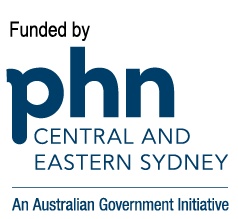Eligibility
Registered/enrolled nurses working or living in the CESPHN region who work in general practice, community care, residential aged care or other primary care setting. View the full list of eligible postcodes here.
This program attracts CPD hours.
Full program
Optimising Communication for Advance Care Planning (Online)
In this 1.5-hour online session, you will be supported to discuss advance care planning (ACP) with people who have palliative care needs and their carers, and recognise when commencing an ACP conversation would be helpful and how to start these conversations (2 hours CPD inclusive of pre-session reading).
- NEW DATE Thursday, 6 February 2025, 12:30pm - 2:00pm
- NEW DATE Thursday, 20 February 2025, 9:30am - 11:00am
- Thursday, 11 April 2024, 1:30 - 3:00pm (session completed)
- Thursday, 8 August 2024, 10:00 - 11:30am (session completed)
Communication for Bereavement in Palliative Care (Online)
In this 2.5-hour online session, you will be supported to develop skills in conversations with patients, family members and carers around grief/bereavement needs and support; and reflect on providing bereavement support while managing your ongoing well-being (2.5 hours CPD inclusive of pre-session reading).
- NEW DATE Tuesday, 10 December 2024, 9:30am - 12:00pm
- NEW DATE Wednesday, 12 February 2025, 1:30pm - 4:00pm
- Tuesday, 30 April 2024, 10:00am - 12:30pm (session completed)
- Wednesday, 19 June 2024, 1:00pm - 3:30pm (session completed)
Advanced Communication Skills in Palliative Care (Online)
In this 3.5-hour session, topics will include: breaking bad news and critical conversations; responding to unplanned important questions; and brokering a care deal between patients, families, and multidisciplinary teams (3.5 hours CPD inclusive of pre-session reading).
- Thursday 21 March 2024, 12:30 - 4:00pm (session completed)
- Friday 10 May 2024, 12:30 - 4:00pm (session completed)
Complex Symptom Management (Online)
This 3.5-hour session will provide nurses with an overview of the current evidence in relationship to screening, assessing and managing three commonly experienced symptoms (3.5 hours CPD inclusive of pre-session reading).
- Friday, 22 March 2024, 9:00am - 12:30pm (session completed)
- Friday, 9 August 2024, 9:00am - 12:30pm (session completed)
Advanced Communication Skills in Palliative Care + Complex Symptom Management (In-person)
Nurses looking to advance their skills and knowledge in palliative care are invited to attend a full-day, in-person workshop with an opportunity for extended discussion and learning activities regarding advanced communication and complex symptom management in palliative care (7.5 hours inclusive of pre-session reading).
If attending this session, you do not need to attend Advanced Communication and Complex Symptom Management.
- Friday, 31 May, 9am - 5pm at the University of Technology Sydney (session completed)
Outcome
Completion of the Masterclass Program will enable nurses to effectively implement knowledge into daily practice to address the needs of palliative care patients, families, and carers and to ensure patients receive the right care, at the right time in the right place.
Attendees will receive a digital badge and certificate for each session they complete. Slides and resources will be available to download. Attendees will have access to a Canvas-based Palliative Care community of practice for 12 months.






